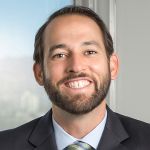BillMoyers.com is proud to collaborate with TalkPoverty.org as we focus on poverty coverage over the next two weeks. Every day, visit BillMoyers.com to discover a new action you can take to help turn the tide in the fight against poverty.

(Photo: longislandwins/flicker CC 2.0)
This year marks the 50th anniversary of Medicare and Medicaid, two programs that play a key role in ensuring that elderly and disabled Americans have access to health care and are not bankrupted by its costs.
Before Medicare and Medicaid were created in 1965, 35 percent of Americans over 65 did not have health insurance, leaving a huge uninsured aging population with either insurmountable doctor and hospital bills, or more frequently, no health care at all.
While we celebrate the fact that millions of people are better off now than they were in 1965, we must be aware that access to health care is continually threatened by program cuts, and millions of beneficiaries have trouble accessing the care they are entitled to because the programs don’t always work as well as they could.
Medicare provides health care for 54 million seniors and people with disabilities, while Medicaid is the single largest source of health care coverage in the nation, covering some 68 million low- income children, families, pregnant women, workers, people with disabilities and seniors.
Since health care costs are one of the leading drivers of bankruptcy and because these programs serve so many people who are already living in poverty, preserving and strengthening Medicare and Medicaid is one of the biggest things we can do to fight poverty.
We and other healthcare advocates are using the opportunity of the Affordable Care Act to strengthen and improve these programs by working to ensure new coverage options and models of care reach communities of color and low-income families and improve access to the services they most need. In addition, we and everyone who cares about poverty, must use the opportunity of the 50th anniversary of these programs to celebrate their successes and speak out strongly against program cuts or changes that would threaten the health and economic security of some of our most vulnerable citizens.
Sign up for NSCLC updates to stay updated on when your voice can make a difference on these and other issues that affect low-income.
The views expressed in this post are the author’s alone, and presented here to offer a variety of perspectives to our readers.



